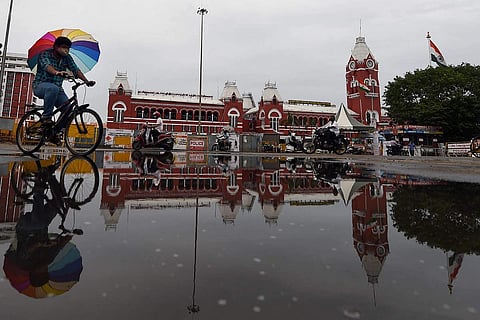

As railway stations across India witnessed violent protests against the Union government’s new Agnipath scheme, the Southern Railways on Monday, June 20, barred the sale of platform tickets in Chennai till further notice. The move comes as a precaution against agitations in Chennai, though it did not see protests like the ones in other parts of the country over the past week. This is the first time that visitors are being barred from railway stations since pandemic-related restrictions were lifted.
“In view of the proposed Bharat Bandh and to safeguard the safety and security of passengers, the issue of platform tickets is at all railway stations over Chennai Division of Southern Railway, until further orders,” the Chennai Division PRO said. With this, only those who have valid tickets will be allowed in the stations, with the exception of caretakers for elderly or disabled passengers.
Railway Protection Team forces have been strengthened at MGR Chennai Central and Egmore stations. The restriction on platform tickets is not permanent but has been imposed until further orders, to prevent untoward incidents as protesters called for a Bharat Bandh.
The Agnipath scheme, announced on June 14, provides for the recruitment of those in the age bracket of 17-and-half to 21 years in the armed forces for only four years, with a provision to retain 25% of them for 15 more years. Those recruited through the scheme would be known as Agniveers. The government projected the scheme as a major step in overhauling the decades-old selection process to enhance the youthful profile of the services.
However, people across the country have been protesting against the contentious scheme. As protests against the scheme intensified, the government relaxed the upper age limit to 23 years in a move to pacify job aspirants who could not attend recruitment rallies for the last two years. The recruitment had been stalled for over two years due to COVID-19.